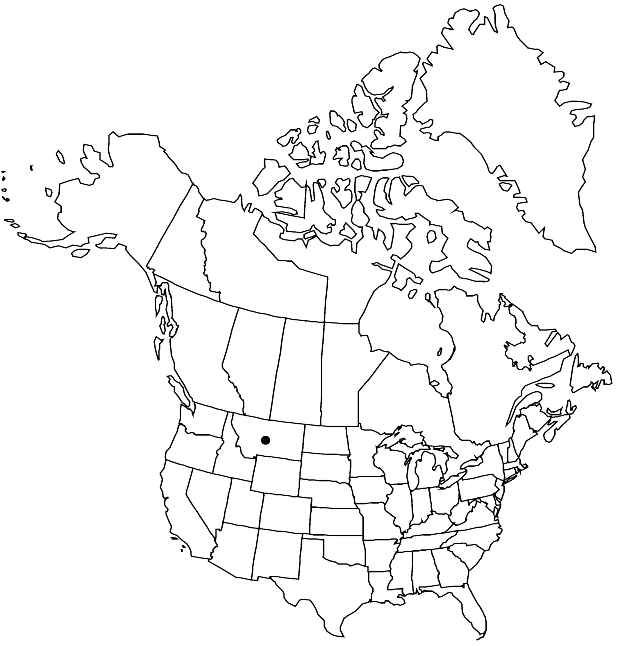Difference between revisions of "Physaria lesicae"
Novon 12: 325. 2002 (as lesicii).
GeoffLevin (talk | contribs) (Corrected spelling of epithet in accepted name and basionym to "lesicae") |
GeoffLevin (talk | contribs) m (GeoffLevin moved page Physaria lesicii to Physaria lesicae: Accepted name change) |
(No difference)
| |
Latest revision as of 19:38, 12 April 2023
Perennials; (delicate, short-lived); caudex simple, (sometimes elongated, covered with persistent leaf bases); usually sparsely pubescent, trichomes 7–12-rayed, rays furcate near base. Stems simple from base, erect to decumbent, (unbranched, mostly filiform, slender), 1–1.5 dm. Basal leaves (erect, petiole slender); blades broadly ovate to elliptic, 0.5–1 cm, (base abruptly narrowing to petiole), margins entire. Cauline leaves (remote, distally shortly petiolate); blade ± spatulate, (base cuneate), margins entire. Racemes lax, (elongated, few-flowered). Fruiting pedicels (recurved to widely spreading, filiform, slender), 5–10 mm. Flowers: sepals (erect), oblong, 3.5–4 mm, (lateral pair not saccate); petals (often fading to light purple apically), spatulate to nearly lingulate, 6–7 mm. Fruits (pendent), globose or subglobose, compressed, 3–4 mm; valves ± densely pubescent; ovules 6–10 per ovary; style ca. 1.5 mm. Seeds not seen.
Phenology: Flowering Jun(-early Jul).
Habitat: Pryor Mountains, on limestone soils in woodlands of Rocky Mountain juniper and/or mountain mahogany, and widely scattered Douglas-fir, fellfields dominated by bluebunch wheatgrass and cushion plants
Elevation: 1600-2000 m
Discussion
Of conservation concern.
Selected References
None.
